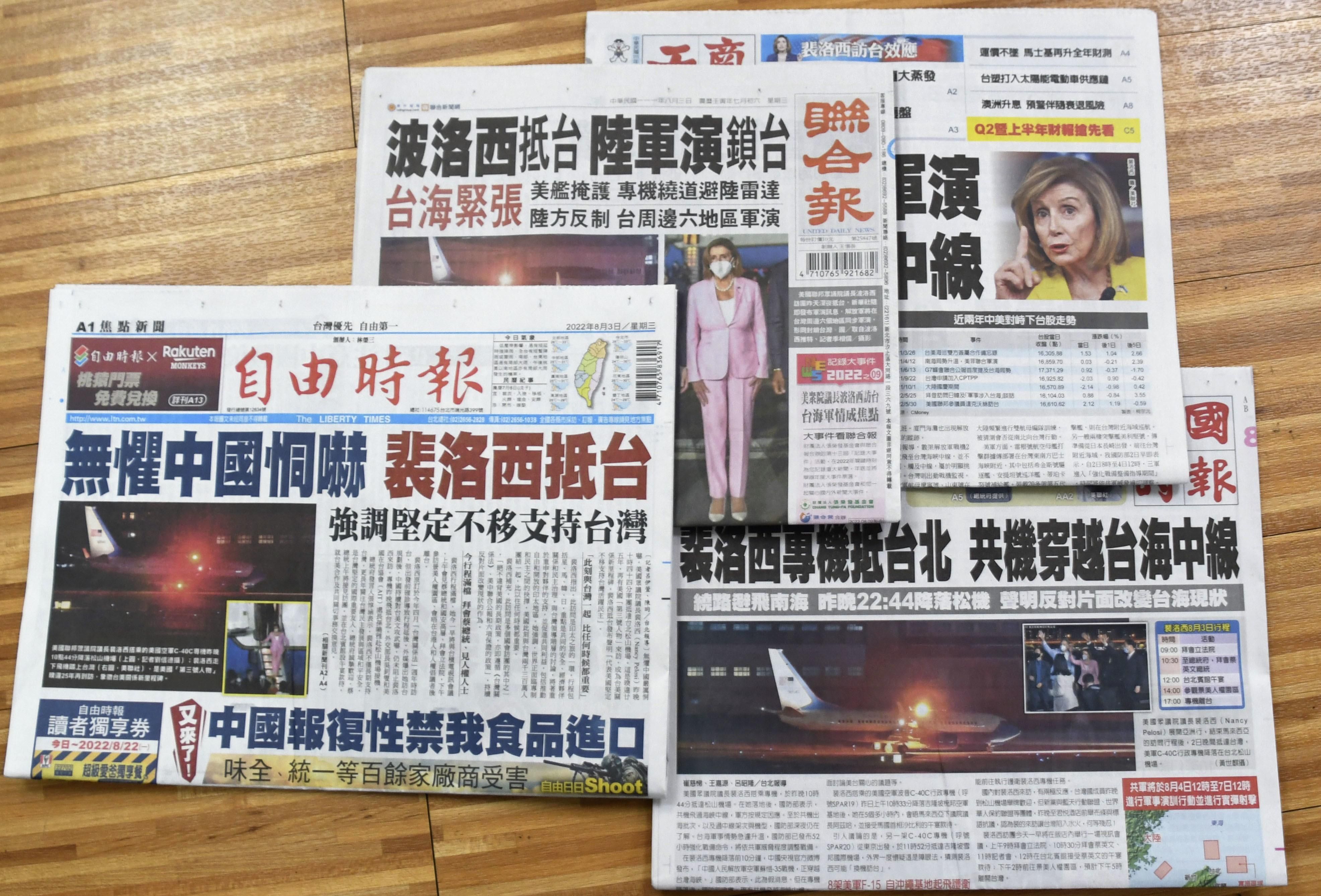What We're Watching: Tensions in Taiwan, violence in Nagorno-Karabakh, Erdoğan in Russia
(More) trouble in Taiwan
Tensions in the Taiwan Strait are now at their highest level in a quarter-century after China fired ballistic missiles at waters near the self-governing island on Thursday. The launch was part of broader live-fire drills scheduled to conclude on Sunday — Beijing's furious answer to US House Speaker Nancy Pelosi visiting Taiwan earlier this week. So, what might happen next? We're keeping an eye out for three things. First, whether China escalates even further by shooting missiles into waters off eastern Taiwan — thus violating the island's airspace, tantamount to declaring war. (By the way, the Chinese might need a bit of target practice after five projectiles landed inside Japan’s EEZ.) Second, how the drills will impact navigation and trade in the region, with many flights cancelled and cargo ships now avoiding the Taiwan Strait. Third, how the US will respond: 26 years ago Bill Clinton ended the last major US-China standoff over Taiwan in one military fell swoop, but it's unlikely Joe Biden will have the appetite to risk all-out war with China. Sanctions? Strong-worded statements blasting Beijing and supporting Taipei? You bet. But that'll be the end of it. Meanwhile, 23 million Taiwanese people will spend the next few days frantically awaiting China's next move.
Nagorno-Karabakh suffers flareup
Clashes between Armenian and Azerbjani forces reignited this week near the contested enclave of Nagorno-Karabakh, a landlocked region in the South Caucasus. (For a good primer on the conflict, read our explainer here.) Both sides exchanged barbs Thursday and blamed the other side for violating a ceasefire, which resulted in gunfire that reportedly killed three soldiers. Several outlets have reported that Armenian separatists fired on the Azerbaijanis, who then retaliated. This sliver of territory — mostly recognized internationally as belonging to Azerbaijan — has been a flashpoint since it was occupied by Armenian separatists after a bloody war that ended in 1994. In 2020, a weeks-long war between the two sides led to 6,500 deaths and large swaths of territory being handed over to Baku as part of a Russian-backed truce, which includes Moscow keeping some 2,000 “peacekeeping troops'' in Nagorno-Karabakh (Moscow is technically treaty-bound to defend Armenia.) Azerbaijan has recently begun resettling people in the disputed territory, a process it’s calling “The Great Return,” which is clearly rubbing Armenians the wrong way.
Erdogan is first NATO leader to visit Russia since Ukraine war
Turkish President Recep Tayyip Erdoğan is set to meet with Vladimir Putin in Sochi, Russia, on Friday – the first time a NATO leader has visited “Mother Russia” since it invaded Ukraine. In recent months, Turkey has ramped up its diplomatic efforts to mediate between Russia and Ukraine, most notably brokering the recent grain export deal that has seen shipments set sail this week from the port of Odesa for the first time in months. Top of mind for Erdogan will be Syria, where Russia and Iran are on the opposite side of Turkey. Erdogan recently threatened to invade northern Syria to destroy Kurdish militant groups based there, but both Moscow and Tehran have warned him against an invasion. With Russia controlling much of Syrian airspace, Erdogan needs Putin’s permission before he can proceed with any move on Syria. Putin, meanwhile, may be looking to secure economic support in the face of western sanctions, which have battered his economy. Ongoing energy cooperation between the two will also likely be on the agenda, along with the situation in Ukraine, and rising tensions in Nagorno-Karabakh, where both sides have a stake.
